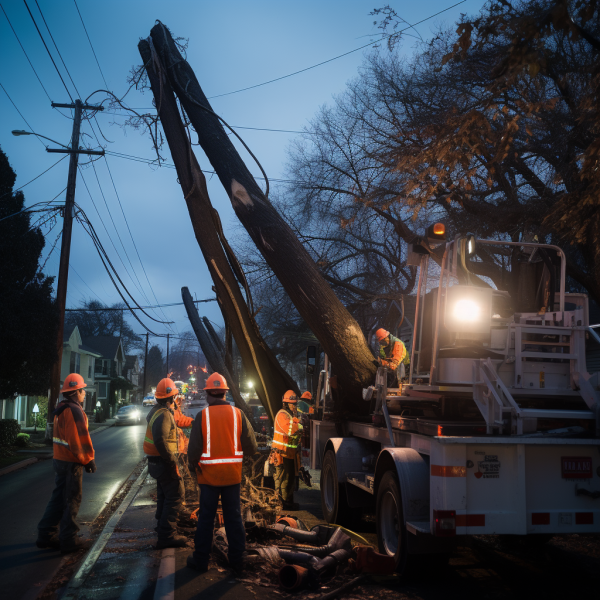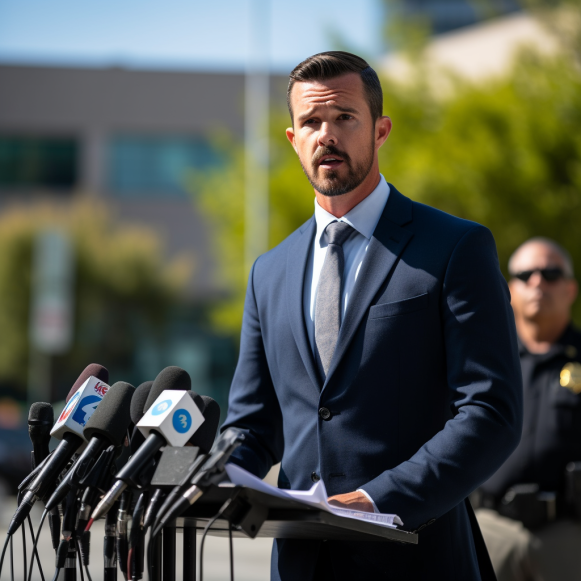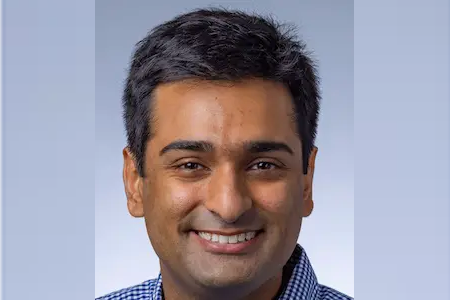Newsom vetoes bill to give striking workers unemployment benefits

The move comes amidst strike actions across the state
Days after President Joe Biden joined a picket line of striking autoworkers in Michigan in an unprecedented public show of support, California Gov. Gavin Newsom vetoed a bill that would have provided unemployment benefits to striking workers — a blow to organized labor in a state that traditionally supports it.
“Now is not the time to increase costs or incur this significant debt,” Newsom said in a veto statement issued over the weekend.
The Writers Guild of America, which recently reached an agreement to end a months-long strike, and SAG-AFTRA, the union representing thousands of Hollywood actors, both supported Senate Bill 799. Workers in industries ranging from health care to hospitality are increasingly resorting to strikes in order to secure better wages and working conditions.
While the move has angered labor leaders, it is a political calculation that Newsom, who is widely expected to run for office outside of deep blue California one day, appears to be able to weather.
“It’s okay to be labor’s best friend if you’re Newsom.” “You don’t have to be their best friend,” said Dan Schnur, a political analyst and professor at UC Berkeley, USC, and Pepperdine University. “The last four governors have had to deal with extremely large budget deficits, which resulted in either significant tax increases or painful spending cuts — or both.” Newsom does not want to be in the same situation.”
Striking workers would have received state unemployment checks worth up to $450 per week after striking for at least two weeks, according to the proposal. Even without the bill, the state’s unemployment benefit fund is expected to be nearly $20 billion in debt by the end of the year.
“It’s critical that we focus our attention on the higher priority of restoring this system’s fiscal health rather than adding to the problem,” said Jim Wunderman, president of the Bay Area Council, a pro-business organization that applauded Newsom’s veto. “We can’t keep saddling business with more and more costs and expect the state’s economy to flourish.”
While labor groups overwhelmingly supported the bill, which was passed by the legislature on September 14, Republican lawmakers overwhelmingly opposed it. They claimed it would give workers an advantage in strike negotiations, and the California Chamber of Commerce described it as a “job killer.” During a strike, Democrats said they would support workers who often rely on side jobs and union funds to pay their bills.
Following the veto, California Labor Federation President Lorena Gonzalez Fletcher stated that Newsom’s decision was “incompatible with American values.”
Strikes have broken out across California this year, affecting not only Hollywood writers but also thousands of Los Angeles hotel workers seeking higher wages. The nation’s largest health-care strike in history may begin this week on Wednesday. There was no agreement in place when the contract for 75,000 Kaiser Permanente employees expired. Strikers are expected to include nursing assistants, emergency medical technicians, and pharmacists, affecting 12 million patients in California, Oregon, Washington, Colorado, Virginia, and Washington, D.C.
“The hardworking women and men of California need to put food on the table and pay their rent,” said Senator Anthony Portantino, a Democrat from Burbank who sponsored the legislation. “SB 799 would have injected a small piece of security to working families that is needed and deserved.”
Despite the backlash, Schnur said Newsom’s veto didn’t distance him too much from other Democrats, including Biden. Even though the president joined the picket line earlier this month, Schnur pointed out that the Inflation Reduction Act did not give unions everything they wanted. And Newsom and Biden are engaged in diametrically opposed political games. Biden, who has already won the presidency, must now rally his supporters. Meanwhile, Newsom appears to be attempting to broaden his appeal — a task that will almost certainly necessitate moving toward the political center on some issues.
“Although it’s true that we’re a labor-friendly state, and he’s a labor-friendly Democratic leader, it’s a very progressive bill,” said Melissa Michelson, dean of arts and sciences and professor of political science at Menlo College. “We all know that Newsom has ambition, and to some extent, he probably wants to insulate himself from claims that he is too liberal — and too left for the country, or even for the state.”
Days before the veto, Newsom signed legislation raising the minimum wage for fast food workers across the state, ensuring that the group of workers has the highest guaranteed base salary in the industry. Nonetheless, the governor was chastised for vetoing legislation requiring human drivers on self-driving trucks, which union leaders claimed would have saved thousands of jobs across the state.
“In the short-run, people are going to be mad because they’re disappointed,” Michelson stated. “But in the long run, (Newsom) will have done other things, and he’ll, quote, unquote, ‘prove’ that he’s pro-labor again.”





